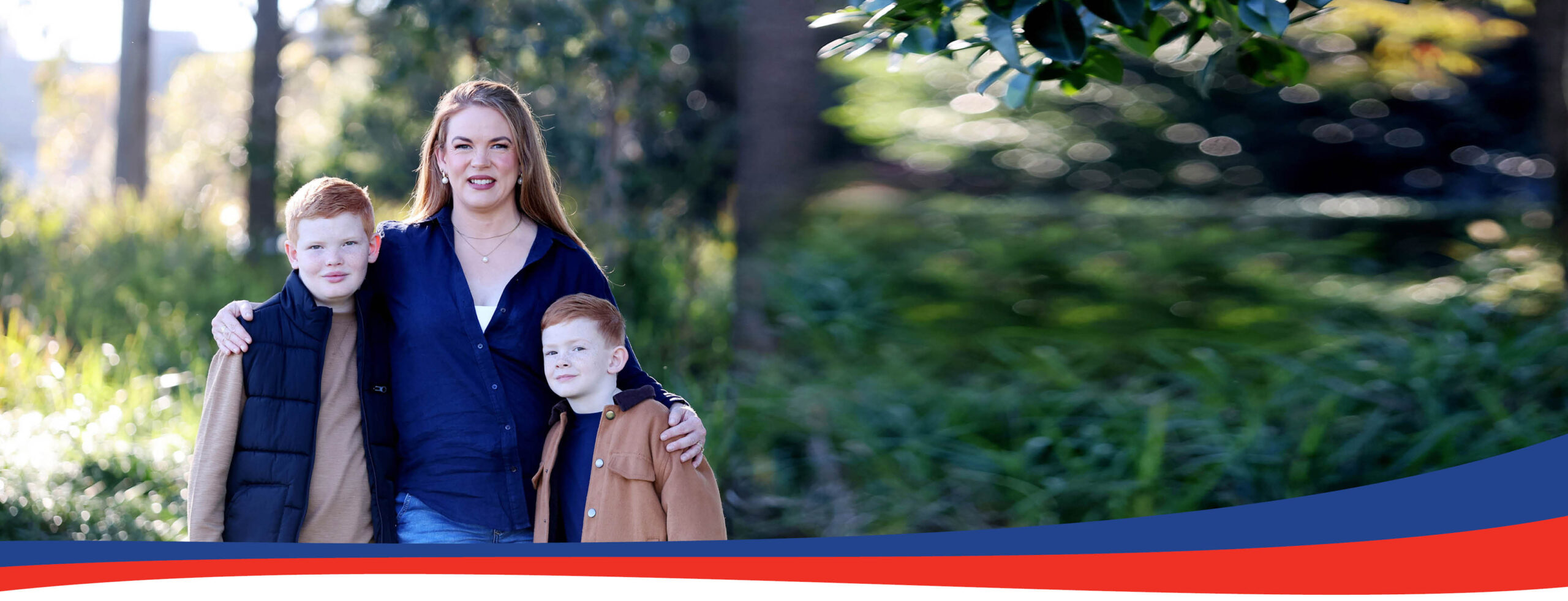
Leniece
When you give to Legacy, you are providing vital care to young veterans’ families, like Leniece’s, who are grappling with the unexpected loss or injury of their loved ones. ...
Read story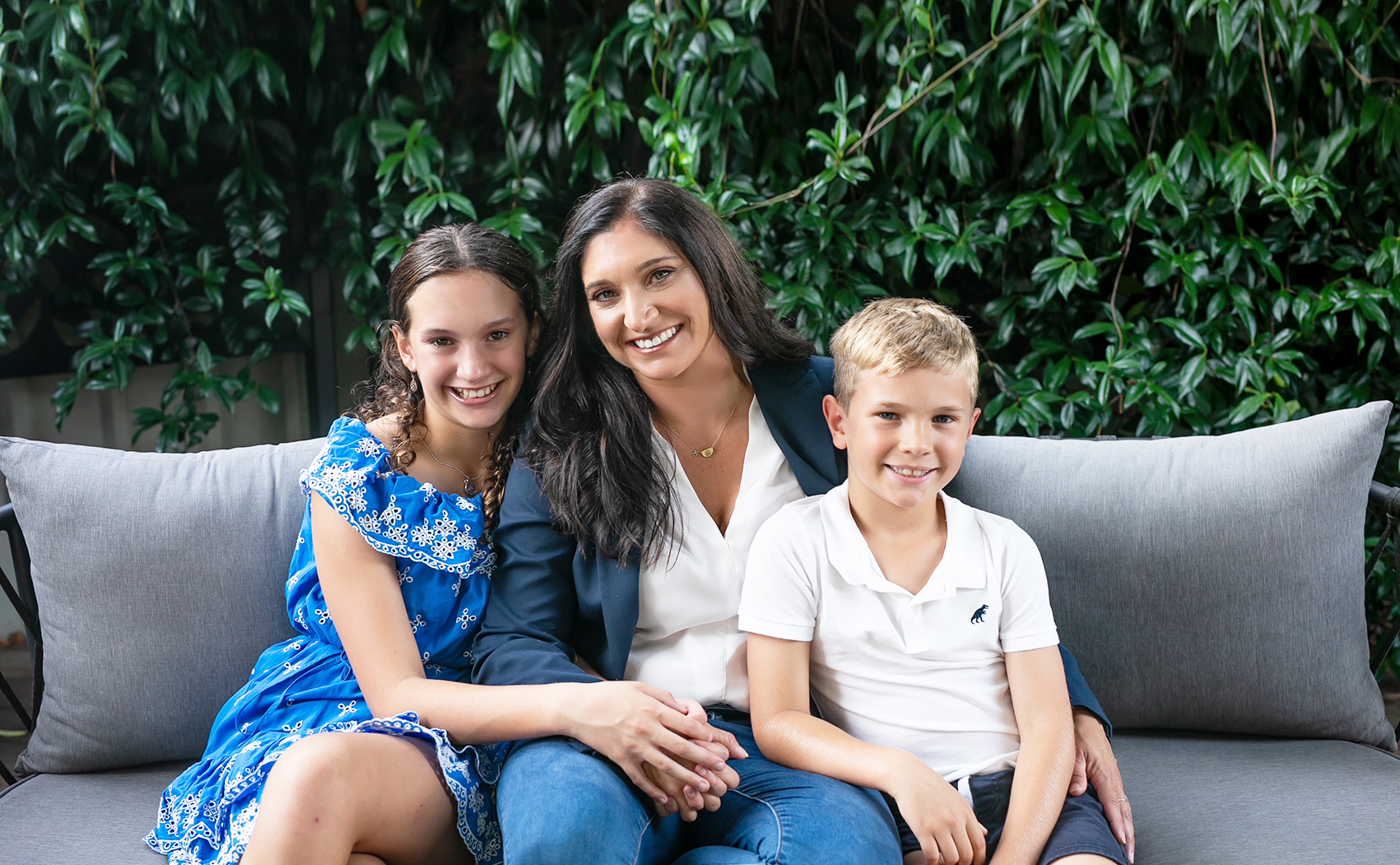
Standing on top of the Sydney Harbour Bridge on a picturesque Friday afternoon, cars speeding by below and helicopters circling over head, Gwen Cherne was enveloped in a warm hug by Prince Harry.
Together with a group of Australian team members for the Invictus Games and Prime Minister Scott Morrison, they had just climbed 1332 stairs to the peak of the iconic crossing.
There, they stood staring out at the city skyline beyond, when Harry, the Duke of Sussex, leaned in to ask Gwen about her late husband, Peter.
“It was like having a conversation with an old mate,” Gwen recalled.
“I thought before we went up that I might get a hello, but a few sentences in, it was clear we were going to have a real conversation. He kept talking to me until we were done.”
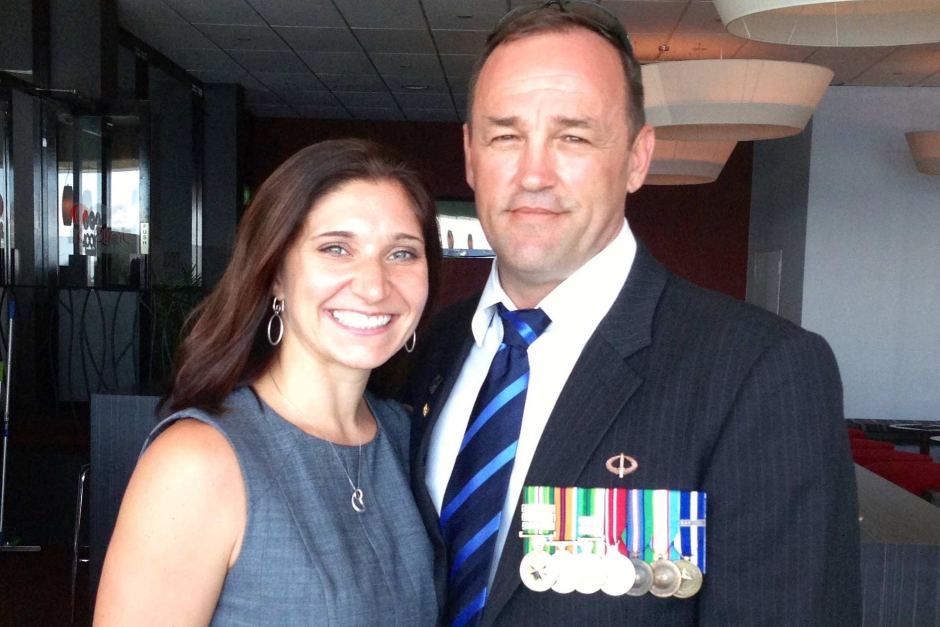
On February 6 2017, Sergeant Peter Jon Cafe, a decorated member of Australia’s Second Commando Regiment, took his life in the garage of the family home.
Sergeant Cafe had served his country in Iraq, Afghanistan and East Timor, living in constant threat in the midst of war zones and bloody conflict.
The impact of his experiences led to PTSD and mental illness, a new kind of battle at home for which he wasn’t trained.
“Harry asked a lot about Pete and he was very thoughtful,” Gwen said.
“He wanted to know more and fill in the gaps. He asked about our time in Afghanistan and Pete’s mental health struggles. He was asking about the notion of the tough guy image in Australia and the stigma around mental health.
“He wanted to understand the reality facing our veterans, their families, their mental health and wellbeing.
“He wanted to understand the context of my experience. For someone who is so busy and meeting so many people, it was incredible. Everything else fell away and he engaged with me.
“All while hanging out on the top of a bridge overlooking Sydney – it was an incredible place to feel completely at ease, having a very profound conversation with a pretty humbling individual.”
There, in that unlikely spot, engaged in an intimate and heartfelt moment with the most unlikely of people, was a world away from where she and Peter first met.
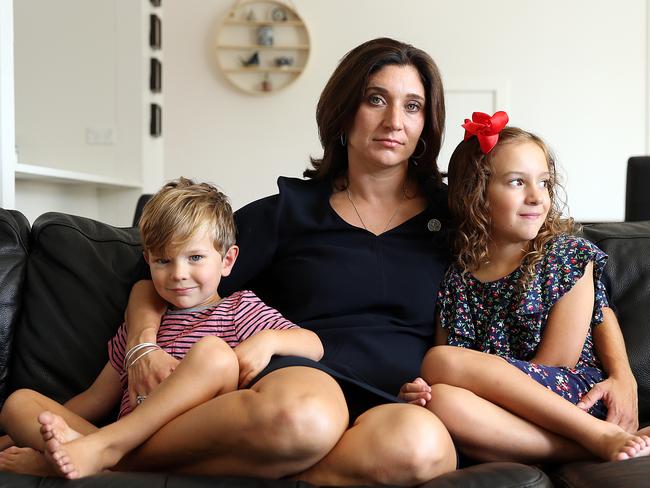
The American-born international development expert worked on and off in Afghanistan, both in and outside of the relative security of military compounds, on projects between 2006 and 2010, in Kandahar, Jalalabad and other dangerous spots.
During one stint, Peter was part of the security team that guarded Gwen and her colleagues.
“Our love story was acknowledged by others before it was acknowledged by us,” she laughed. “People saw something between Pete and I that we didn’t at first. Someone would say something about us and I thought it was hilarious.
“We were in the gym one day and he was teaching me Muay Thai martial arts. A friend of mine said we were so cute together. We kind of looked at each other and it was like, oh, now we see it!”
And that was that. They began dating, surrounding by the swirling sands of the Afghan desert, before eventually settling in Australia as husband and wife.
Now, since that unspeakable tragedy last year, a lot of Gwen’s time is spent speaking about the difficulties of Peter’s condition. The deep depression, the anxiety, the spates of anger and violence.
But her voice softens when she recalls the other side of the broken commando; the side she fell in love with and then mourned, long before he died.
“He was very loving. He was a caretaker, he was thoughtful and he was a great friend of mine before we started dating,” she said.
“I respected his morals and his values. He had a vision of what was right and wrong, and what meant something in the world.”
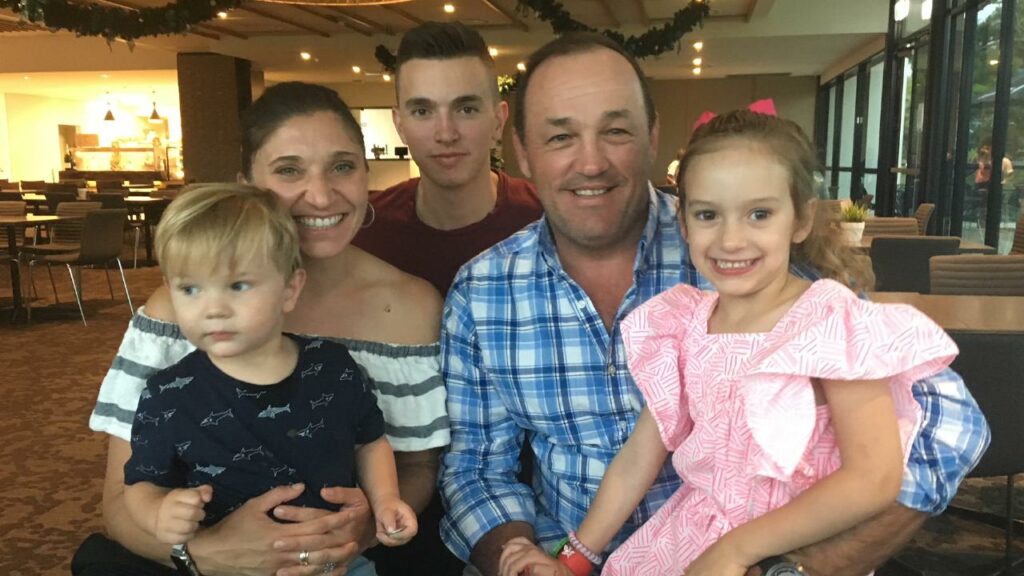
Peter battled all manner of demons. Gwen threw herself into the role of carer, picking him up when he fell down and doing her best to guide him through the darkness.
“He didn’t feel worthy of love,” she said. “He was one of the most successful people I’d ever met. Anything he wanted to do, he went out and accomplished it.
“He was one of our elite soldiers in Australia. But it was never enough. When he failed, he felt shame and he held on to it.”
Initially, at her insistence, he began therapy. There were positive improvements and she felt they had finally turned a corner together.
But away from the conflict, like so many other veterans do, Peter struggled with his identity being so tightly wrapped up in his career. The demons returned.
“I focused on being the family support for Pete. But ultimately, I knew that he had to do that work to heal. We had conversations about it and it was scary to him,” Gwen recalled.
“I could stand by him, I could go with him, but it didn’t work. It had to come from him and he had to want to do the work. I was there, I was always there, but he couldn’t hear that.
“He thought I would abandon him. No matter how much love we gave him, no matter how many children I had with him, how much I was able to be that strength for him, there was something inside of him that doubted it all, constantly.”
Peter’s pain was so severe and so deep that all of the love in the world couldn’t fill the void he felt. The family battled on, locked inside a daily tinderbox.
The Friday before he died, his mood turned dark and he became violent. Gwen took their children and left, to ensure their safety and her own, and called his unit to intervene.
He spent the next day playing golf and even stopped in at Bunnings on his way home. On the Sunday, he wrote some letters and made a few phone calls.
On Monday, an army chaplain phoned to check in, to see where his head was at, and Peter “said all the right things”.
Peter insisted that he knew there was much to live for, that he loved his family, that he would get the help he needed.
And then 15 minutes later, he was dead.
“I broke,” Gwen said of the aftermath. “I honestly wouldn’t have gotten out of bed again if it wasn’t for my kids.
“My son is the spitting image of my husband. His face, his smile, his mannerisms. There’s a mischievousness behind his eyes. He is my husband through-and-through.
“My daughter has this ability to say something is white when I say it’s black. If I say the sky is blue, she’ll say it’s purple! She is patient and kind and resilient.
“They are love and light and joy in my life. I honestly would not have coped. They are my reason for living. Making sure they know they are loved every single day is my priority. There is nothing that drives me harder.”
In 2018, Gwen delivered speeches at events held in Sydney to coincide with the Invictus Games, for which she was an ambassador.
She has given similar public addresses countless times since her husband’s passing, delving deep into the pain that swirls within her to find a scrap of hope that she can share with others.
“When I reflect on it, life has thrown a real challenge at me and my family. I’ve been to absolute hell and back in the past couple of years, with my husband’s mental health issues, trying to protect my family while helping him, and then his death.
“Standing up every day and showing that Invictus spirit is important. I keep telling the athletes that they’ve been my inspiration to get out of bed many a day and keep going.”
Talking about the issue that has so profoundly upended her life is critically important.
Between 2001 and 2016, there were 373 deaths by suicide of men and women who served in the Australian Defence Forces. Of those, more than half were ex-serving personnel.
For ex-serving men, suicide rates are significantly higher than males in the general population.
In 2017 alone, the Department of Veterans’ Affairs’ dedicated Open Arms counselling service provided 100,000 sessions to 27,000 vets and their families.
“It’s really important that we recognise that not all of our soldiers, airmen and women, and sailors are broken, but it’s important to note that they are impacted by what they experience,” Gwen said.
“Someone said to me yesterday that serving men and women aren’t the guardians of their soul – the captain, the major, the commanding officer is. They have to leave everything they know at the door and fall in line with the military.
“No matter what they think, despite their values and character, they have to put it all aside. So, when they leave the military, they have to figure out how to reconcile what they’ve been doing for the past five, seven, 10, 20 years of their life.”
The impact of PTSD in veterans can have devastating consequences and the government is devoting significant resources to turn around the alarming trends.
A range of support services are available for those struggling, but too many men and women don’t feel able to access them, Gwen said.
Take Peter, for example – he taught mental health first aid to soldiers and was acutely aware of the risks associated with battle and the symptoms to look out for.
“And he helped so many people,” she said. “I think the stigma that we hold, the shame that we hold within ourselves, is what stops us from getting help. It’s not our perception of other people, although that plays a part, but overwhelmingly it’s the thing inside us.
“For people who have been the pillars of strength in their community, to have to admit that they’re vulnerable, is difficult. They feel weak. But it’s not weak – it’s strong.”
And that’s the message Gwen hopes to send by telling her story, as gut-wrenching as it often is, over and over again.
“I was broken by my husband’s death. Broken. Absolutely broken. But I’m putting myself back together, gluing it together piece by piece.”
Gwen is involved with the War Widows’ Guild and is now the Veterans’ Family Advocate with the Department of Veterans’ Affairs.
Much progress is being made when it comes to supporting vets who are struggling with the mental scars of war, she said, and there are “green fields” ahead on which to plant more seeds of change.
But for too many, there’s a missing link between their internal battle and the help available.
“Peer support, lived experience and mentoring, backed up by clinical experience – that is hands down the most important thing we need to do to support our veterans and their families through trauma, grief and bereavement,” Gwen said.
“That is my goal for the next little while, to look at models around the world and bring them here to educate and provide tools to help people move through this.
“A lot of the suffering we see in the veteran community comes from loss. It’s loss of control, loss of mates, loss of career, loss of identity, loss of limbs, loss of expectation, loss of family, loss of a loved one. It’s little losses, it’s everyday losses and it’s big losses.”
If our veterans can get the tools and help they need to process that loss, Gwen believes they can begin to heal.
And in the mean time, she will keep talking.
“In telling my story, I’m helping people leave their mental jails and realise they’re not alone by connecting with someone. It’s showing there’s hope, there’s a reason to keep going, to stand up and talk about these things,” Gwen added.